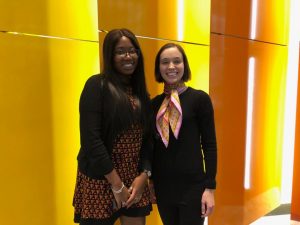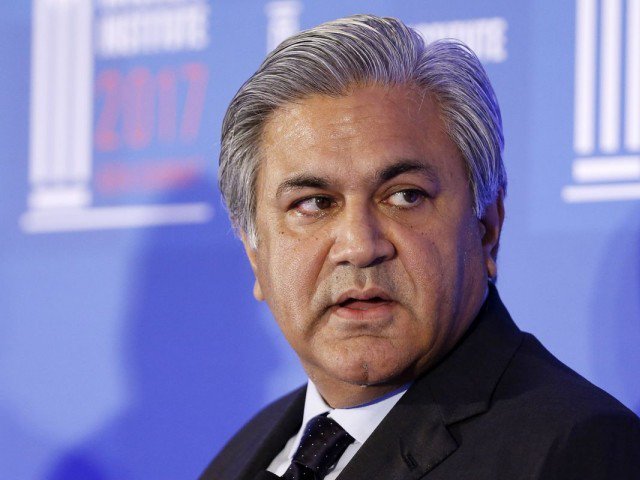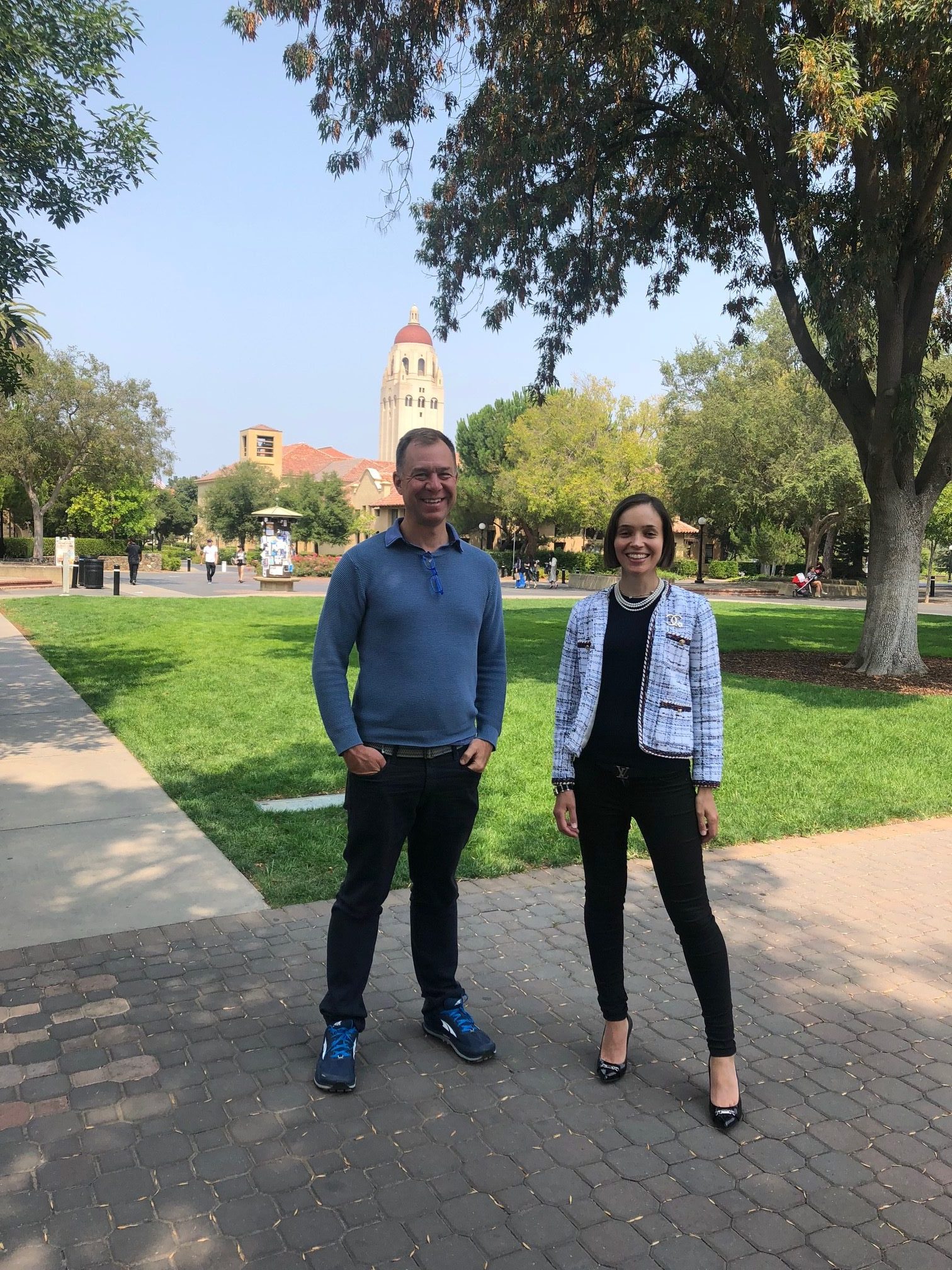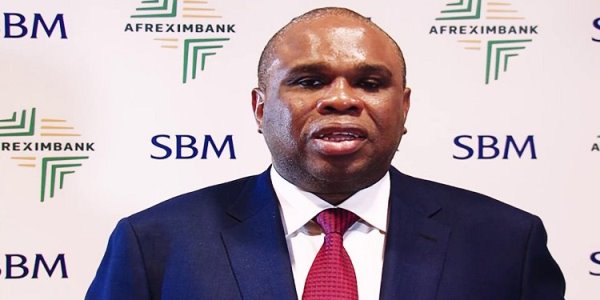Christian Meyers and Alysia Silberg are Partners at Street Global. A venture capital and strategic advisory firm based in Silicon Valley (U.S.A) and London with decades of high technology strategy, startup, growth ( from startup-to-IPO), alliance and ecosystem development, market and startup investing experience. Street Global brings together intensive silicon valley and commonwealth market expertise. In this interview with Alaba Ayinuola of Business Africa Online, Alysia and Christian talked about why they went into venture capital, approach to investing in startups, what makes some startups special, what startups to watch out for when approaching venture capital. Excerpt.
Alaba: Kindly tell us about Street Global Venture Capital and the gap it’s filling?
Alysia & Christian: We founded Street Global because we wanted to create a venture firm that looked both inside and outside Silicon Valley for opportunities. We want to build a bridge between Silicon Valley and the rest of the world because we believe entrepreneurship is global and many future-defining, startups will originate outside the US. We believe we can do a better job as people and investors by exposing ourselves to a diverse group of people and ideas. We also relish this opportunity to learn and enjoy the tremendous growth that comes with learning from a wide range of people.
We also set out to show that performance-focused investing can yield social impact because many important problems in the world — improving health, increasing financial access, helping small businesses become more productive, improving infrastructure — are also very large markets. Very large markets are one of the essential things a venture-funded startup needs. And then there is the incredible competitive advantage a mission-driven company has in attracting talent and resources. Mission is a game-changer for everyone, including us.
Alaba: How did you get into Venture Capital?
Alysia & Christian: We’ve always loved the idea of capitalizing on better ways of doing things. We’ve always loved research and following trends. We’ve been fascinated by the application, elegance and potential of technology, and its ability to increase freedom. Technology’s freedom-generating potential has touched us and changed our lives in very profound and personal ways. We’ve pursued these things from a young age. Throughout our careers, we’ve loved the investing realm. We started as technology entrepreneurs and then transitioned to becoming investing entrepreneurs. Alysia built many profitable and successful businesses, including pioneering data science companies in voice analytics, analytical marketing & media and human capital.
Christian helped build both salesforce.com and SuccessFactors from startups to public companies via alliances and business development systems. Being entrepreneurs and operators who know how to start and scale companies gives us an advantage in recognizing, respecting, empathizing with and understanding entrepreneurs. We are known for giving candid, direct, practical, actionable and helpful feedback. This comes from our lives as entrepreneurs and our genuine love of the work.
One of us is from South Africa, and one of us is from Silicon Valley. We’re different genders, we’re different generations. We wanted to show how this type of team could create financial, entrepreneurial and social value. We both believe there are a lot of inefficiencies in the way the venture capital and limited partner worlds operate that we will address with technology. That alignment, finding a kindred spirit, that’s when we said, “Let’s do this!”
From a practical standpoint, getting into venture capital often involves first risking your own capital, working for years to learn how to do it well, building a strong reputation with entrepreneurs, proving you can get into top deals, building a brand and helping companies. This is what we have done. Ramping oneself up as a venture capitalist is very hard, involves diligence and fortitude and requires a genuine love of the discipline.
Alaba: What is your approach to investing in startups?
Alysia & Christian: We look for very large markets and professionalized founders who genuinely understand what it means to become a venture-backed company. It is not a casual choice, an easy way to make money, an identity you can pull off of a shelf because you haven’t thought about who you are or what you want in the world. It is brutal. You need to know it’s brutal, and you have to want to do it for very deep and enduring reasons. And good things can result. But, it is a system with very high expectations.
We also look for companies that have a new technology or business model that allows them to become or take on industry giants and companies that are solving worthy problems, such as increasing health or financial access. We also closely look at founder psychology and character.
James West, the CEO of Fifth Row / Globe.dx, personifies the character and psychology of a leading founder. When we finish a call with him, we remark how easily we can envision him running a very large global financial exchange. Today, James and his team at Globe.dx are building what we believe will be the leading, institutional-grade, high frequency crypto currency derivatives exchange. We believe that because James’ thinks in the present and the future and because he’s able to connect the two.
He thinks very strategically and about highly scalable systems, but he also hustles to tackle what needs to get done in the present. The Globe.dx exchange will be important for the world’s crypto currency customers because it will provide a necessary ability to manage risk and because it will create liquidity. The Globe.dx team will also offer innovative types of derivatives that extend the range of customer choices.
Alaba: What makes some startups special? Are there startups you won’t invest in?
Alysia & Christian: The founders make some startups special. These are good people, working very hard, investing their lives in a company, facing many unknowns and risks and who are deeply connected to their work. We are inspired by them. The founders influence our psychology, state and motivation. They are the keys to all of this.
The team at Helium Health greatly inspires us with their dedication to improving African hospital operations. When they started, they said to themselves, “We have to do this or maybe no one else will, so we’re going to do it.” They methodically engaged with customers, built world-class hospital management software, are now the leading provider of EMR software in West Africa and will eventually help millions of patients, families and caregivers. They are creating a world-class company culture, and so they are a benchmark for that for us.

Goke Olubusi (Helium Health) and Alysia Silberg (Street Global)

Bolatito Ovia (Helium Health) and Alysia Silberg (Street Global)
Alaba: Have you ever fallen in love with a startup or idea that you considered leaving venture capital and working on it?
Alysia & Christian: Almost every venture capitalist, especially ones who’ve been entrepreneurs, thinks about these things. Our venture capital firm is our startup. It is another company and startup, except it’s in finance. We can innovate, automate, predict, change and help improve things on a social level by doing things differently. We are focused on seeing our company as a startup, and are working in the background to use technology, media and networks in new ways.
Alaba: What are the key things startups should focus on when approaching a venture capitalist?
Alysia & Christian: A startup founder should first study what it means to be a venture-backed company, determine if venture capital financing route is right for them and their company. A founder should also study what venture capitalists’ goals are, how venture capital funds and firms work and what those funds and firms need to accomplish for their customers, the limited partners.
Alaba: Do you think founders get too pressured from investors?
Alysia & Christian: As far as pressuring people into creating a venture-backed startup, it’s the media, the founders’ themselves and their peer groups that create most of the pressure. The media glamorizes entrepreneurship, the media glamorizes venture-backed companies, society embeds this glamorization in culture and people don’t question it. Now there is a notion that being an entrepreneur and creating venture back companies are the only cool and worthwhile things to do, but that’s just not the case. We constantly caution potential founders and entrepreneurs to better understand their needs, goals and choices and to think critically and mindfully. Many times they ignore us. But, if potential entrepreneurs made more informed choices, everyone would benefit.
Alaba: Can you share your good and bad experiences in your journey as Venture Capitalists?
Alysia & Christian: We’ve discussed much of the good elsewhere. Fundamentally, we love our work. We love it so much that sometimes we work too much. It’s important to have other experiences and maintain a sustainable approach to life. It is a great privilege and good fortune to get to do the work we love with people we care about, are connected to and continually learn from.
As for the bad, there is a great deal of bias and chauvinism throughout the finance industry. Sometimes it can subtle, and sometimes it can be pronounced. For example, people won’t realize Alysia is deeply versed in math, statistics, finance, law and data science, has created many technical businesses, is connected to world leaders and speaks before government and NGO leaders on economic development. Alysia will speak on panels and have moderators ignore her until she takes the lead on the panel. Alysia will be in meetings with finance industry people, and sometimes they behave inappropriately. This type of bias and the behaviors that go with it are entrenched and run deep in finance. We believe our venture and work can help change that.
Alaba: What are the biggest challenges and how are you overcoming them?
Alysia & Christian: Investing is a lot of work across many dimensions — evaluating new portfolio companies, managing a high level of administrative and operational work, understanding political and regulatory environments, understanding local cultures globally, working with people in demanding environments, helping current portfolio companies overcome challenges and grow, meeting with people following our work and who may be considering investment in us, building a differentiated global brand, responsibly balancing and managing financial flows and reporting on all of the above. It involves a lot of fortitude. It involves dealing with a lot of psychological stressors. There is a lot of time away from home and family, especially when traveling to different startup hubs for extended periods. This is a big sacrifice.
People tend to think we have a massive infrastructure. In fact, we are simply efficient and hard working. Investing is a job that can literally make a person sick, even if you love it like we do. So stress management, fitness, mindfulness, family, community and friends are all very important.
Also Read Interview With The Founder and CEO BINTI AFRIQUE, Risper Opiyo
Alaba: What inspires you both? How do you feel as an African VC?
Alysia & Christian: We love working with great founders; we love learning from them; we love the windows into the world that they create for us; we love building and initiating change and showing people a better way; and we love being good partners for the entrepreneurs and working to be good stewards of capital.
Alysia’s deep connection to African business started from an incredibly young age, when she was working in her family’s business. Her connection to African culture, leaders, social networks, politics and economic development is a huge competitive advantage for us. She even has incredible on the ground experience — she’s had to source materials, she has her own truck license! She knows how to get the best African software developers.
Christian began investing in Africa prior to meeting Alysia and was working with the principle that Africa represents the future in so many ways. We believe in the spirit and strength of Africa’s entrepreneurial cultures, and it’s strong, pragmatic, can-do culture of innovation. We feel our connection to Africa provides us with a window into the future, a source of community, a source of opportunity and a big competitive advantage. This window extends beyond Africa. It’s a lens for so much of the world outside the US, Canada and Europe.
For example, we recently invested in an incredible CEO, Steve Yao, team, including Noodles Xiong, and company in China. It’s called Woody Library. It will transform who people access goods. It will give many more people in China access to resources. It aligns with everything happening now in China. This arose because Alysia traveled the world for business and culture while working in Africa, and she fell in love with Asia and saw the opportunity to work in China very early on. We have been carefully looking and looking, and we are so proud to be working with Steve Yao, Noodles Xiong and Woody Library team. It Is unbelievable how grateful and excited we are!

Alysia Silberg (Street Global), Christian Meyers (Street Global) and Steve Yao (Woody LIbrary)
Also Read Interview With Doja Culinary Company CEO, Onaopemipo Dara
Alaba: What’s your advice for prospecting startups and African governments?
Alysia & Christian: For African governments looking to work with startups or build ecosystems, please know that it takes patience to build a foundation for a thriving, self-perpetuating startup ecosystem. But, it pays off. Much of what is necessary for supporting startups involves the areas of logistics, banking, telecommunications, governance and regulations and generally making it easy for them to responsibly and swiftly operate. We engage with governments globally, and with startup initiatives, there is often too much focus on marketing. But, what makes a startup ecosystem work is often invisible — it’s the operational infrastructure governments can help provide along with the know how and capital that investors bring. We often speak with governments about how to do this well because we really care.
Passerine Aircraft, founded by Matthew Whalley, is a next generation aircraft company that is building an aircraft company focused on autonomy and robotics. Matthew is an inspired, talented, life long aeronautics engineer and innovator. His aircraft have the potential to bring cargo and monitoring drones into widespread use because they are economical and high performing. Many governments are interested in working with him outside Africa. We’d be thrilled if African governments were competing to support and invest in him as heavily as governments in Europe and North America.
For prospective startups, it’s best to focus on the basics — solve a big problem that you care about and want to work on night and day, create a strong team that is well aligned, learn from your customers, build something they want and will buy, focus on sales early (and learning from those sales interactions), create and maintain the ability to weather setbacks and challenges, keep your focus on executing in the present and the long-term potential of your venture at the same time, build sound business operations, apply the principles of good governance and create a strong foundation via your company culture.

Alysia Silberg (Street Global) and Matthew Whalley (Passerine Aircraft)

Stefano Piccolo (Passerine Aircraft), Alysia Silberg (Street Global) and Matthew Whalley (Passerine Aircraft)
Alysia & Christian Profile:
Alysia Silberg: Investor in seed stage technology startups that address global challenges via business automation, financial technology, health technology and other advanced technologies. Founder of Street Global Venture Capital LLC — a venture firm focused on bridging Silicon Valley and the World via capital, knowhow and relationships. Street Global is a venture firm founded by entrepreneurial operators with a deep understanding of what it takes to create and scale innovative companies. Street Global believes performance, diversity and impact go hand in hand. Lifelong, self-made entrepreneur and founder of data science technology companies. Founder of the Global Online FiresideChat (educational media for social good). UN Women Champion for Women & Entrepreneurs. Investor in private markets. Economic and technology policy speaker before European and African governments. Speaker on entrepreneurship, startup investing and diversity. Mathematician and statistician. Royal Statistical Society. RSA. IOEE. IGD. Dalhousie University. University of Toronto. University of Cambridge. From South Africa. Based in the UK. Substantial experience in Canada and the USA. Substantial experience with various startup ecosystem hubs. Traveled to over 48 countries. Various business and leadership recognitions and professional investor accreditations.
Christian Meyers: Investor in seed stage technology startups that address global challenges via business automation, financial technology, health technology and other advanced technologies. Founder of Street Global Venture Capital LLC — a venture firm focused on bridging Silicon Valley and the World via capital, know how and relationships. Street Global is a venture firm founded by entrepreneurial operators with a deep understanding of what it takes to create and scale innovative companies. Street Global believes performance, diversity and impact go hand in hand. Contributor to and co-host with the Global Online FiresideChat (educational media for social good). Earlier, Christian co-created a high performing, early stage venture portfolio as an angel investor that showcases early work in cloud infrastructure, data, fintech, global diversity, security and women-led companies. Helped build cloud computing leader Salesforce.com from a startup to a public company via business alliances. Helped build the human capital software leader SuccessFactors from a startup to a public company via business alliances. Alliances and business development expert. Bowdoin College. Stanford University. From the US. Based in Silicon Valley, California.
To Apply For Funding,
Email: asilberg@streetglobalvc.com
Visit StreetGlobalVC





























